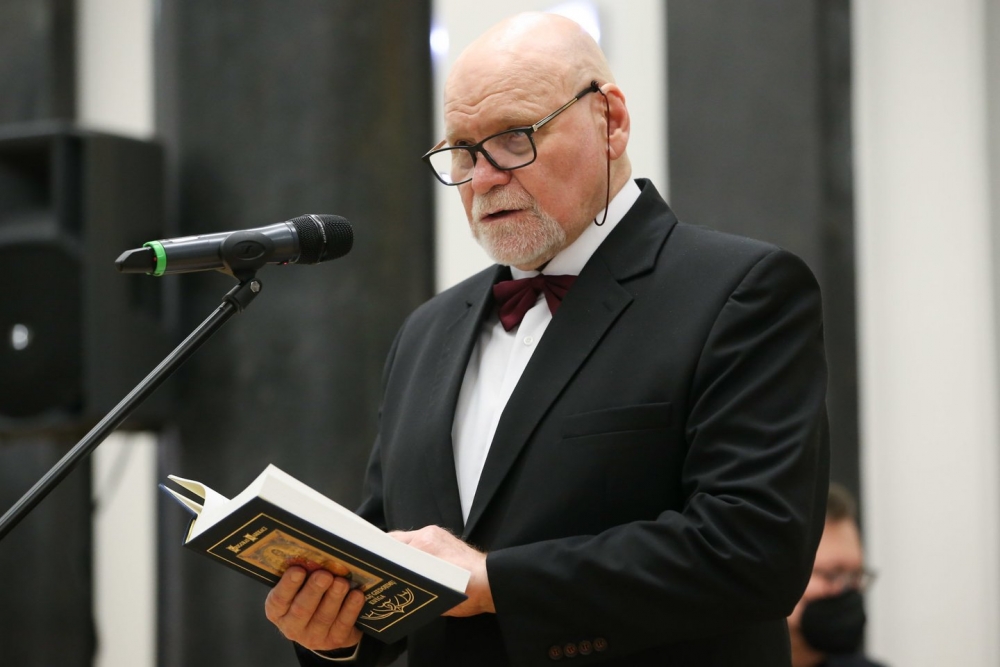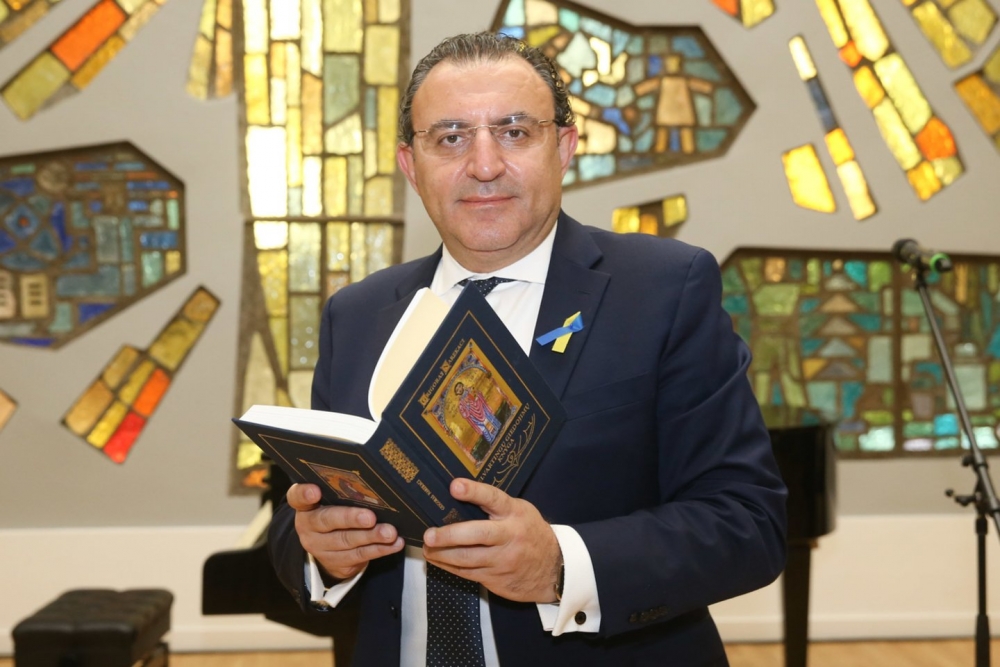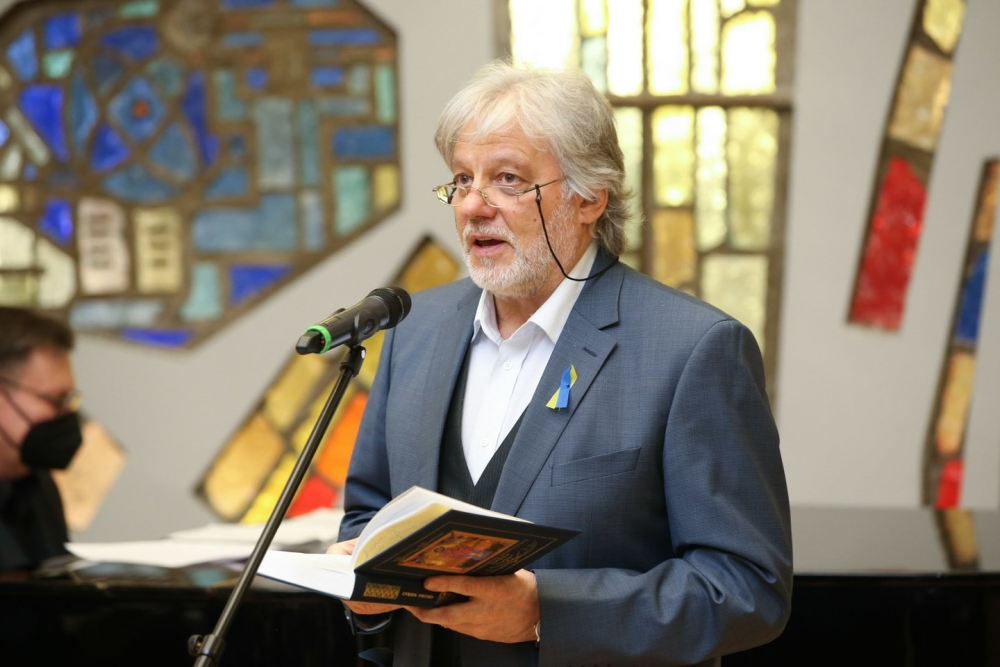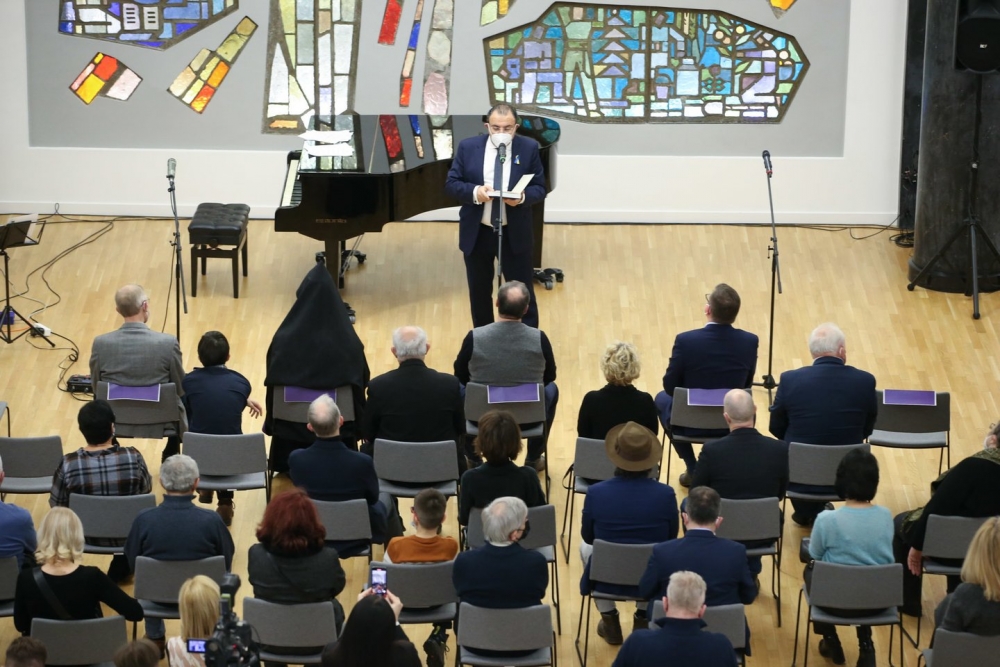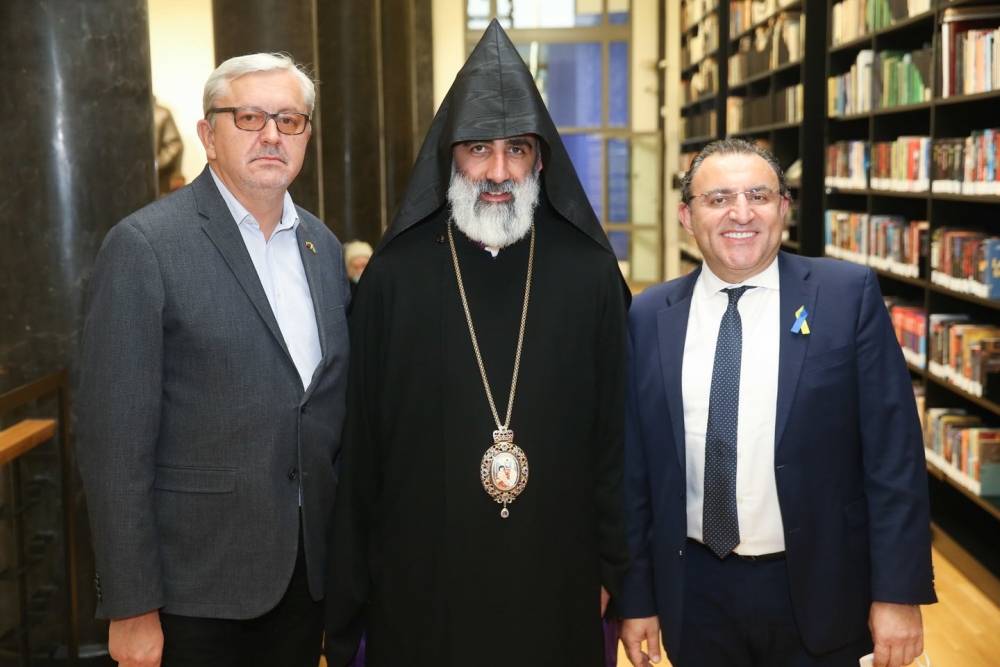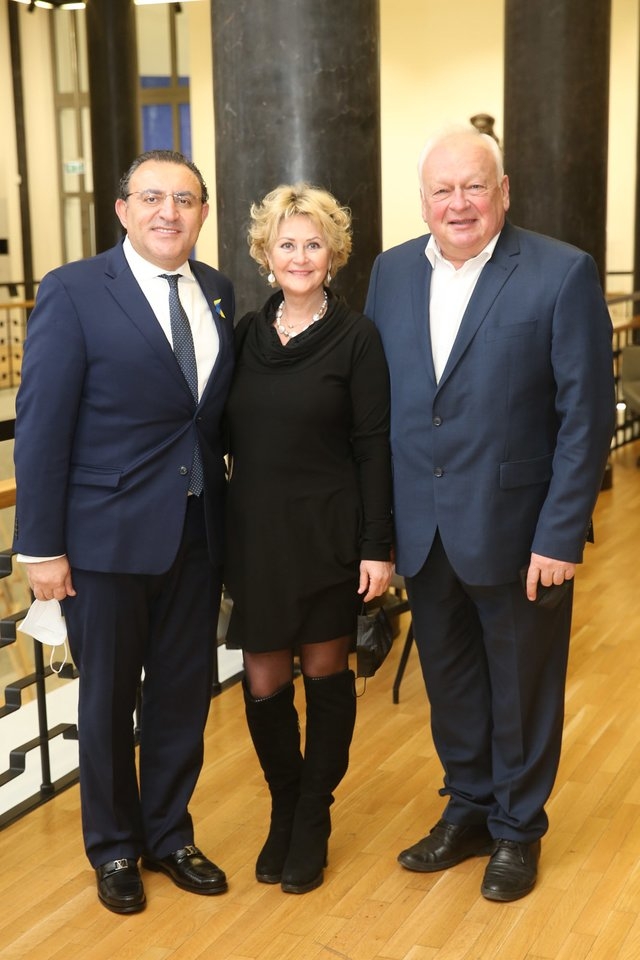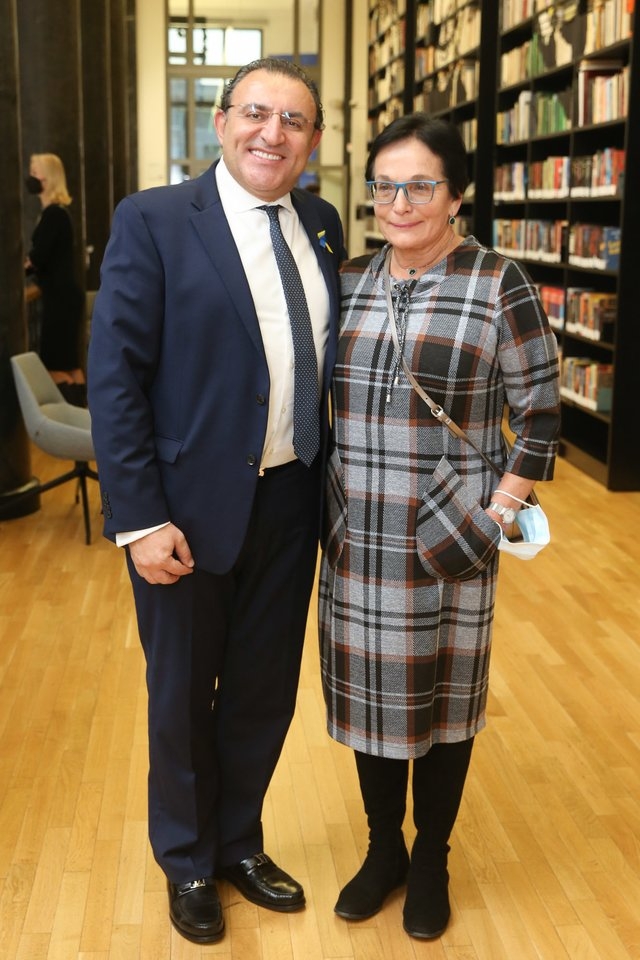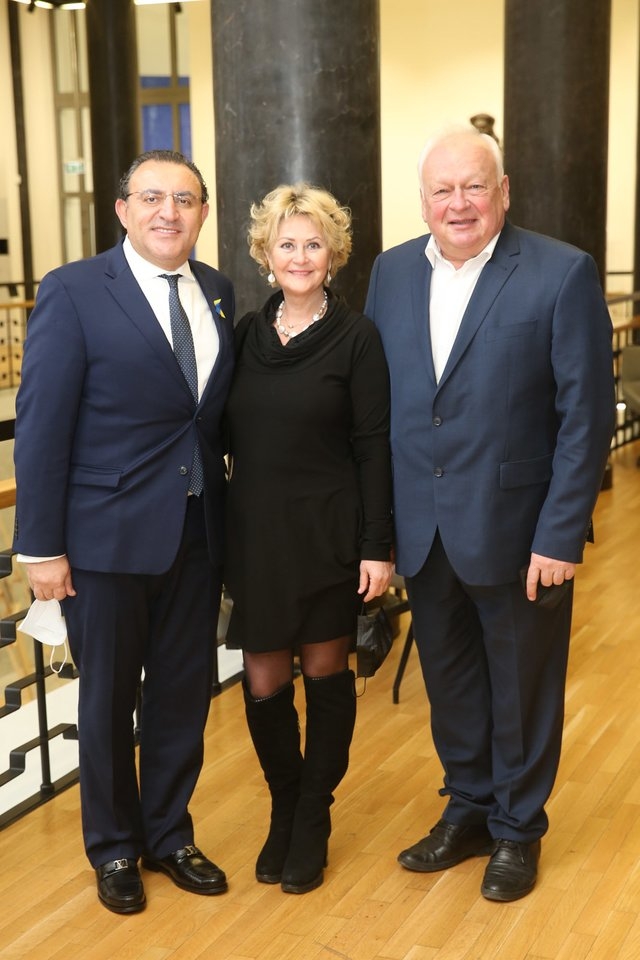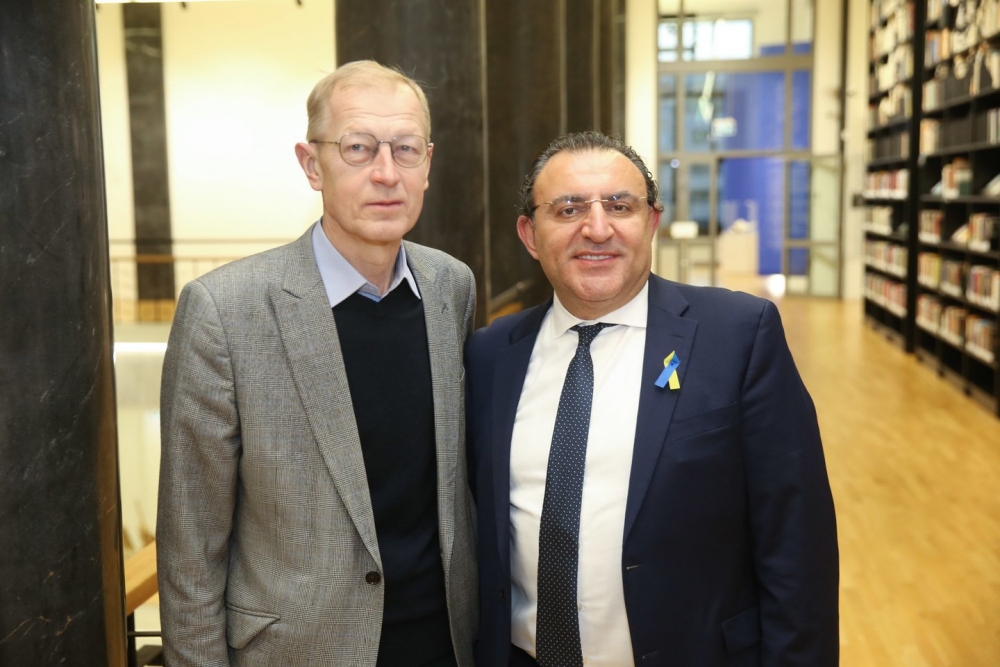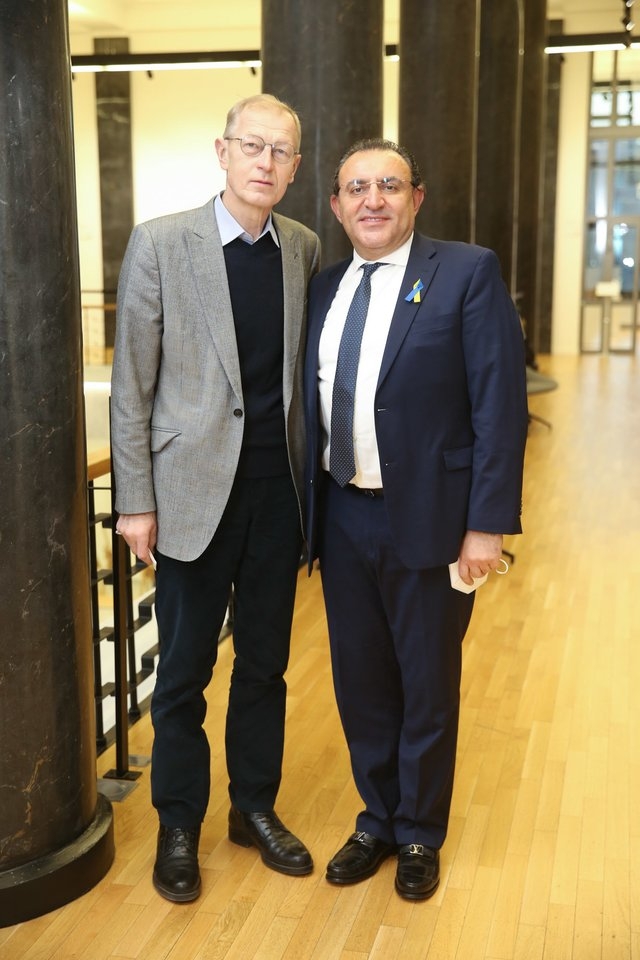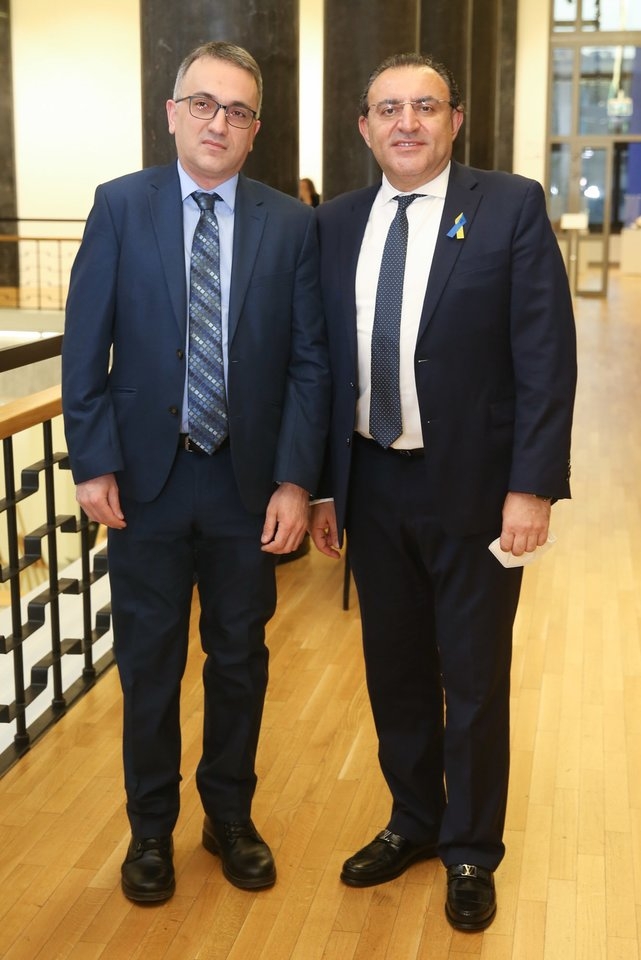Armenian monk enchants distinguished guests with song in the library
By decree of Pope Francis, the 27th of February has been celebrated as the day of remembrance of St Gregory of Narek (Grigor Narekatsi) since 2021. This year, this day was commemorated on Monday at the Martynas Mažvydas National Library of Lithuania with a presentation of the Book of Lamentations, which St Gregory of Narek, an Armenian monk and poet, wrote in the 10th century.
Honorary Consul of the Republic of Armenia in Vilnius and Kaunas Karapet Babayan, Bishop Vardan Navasardyan of the Diocese of Baltic States of the Armenian Apostolic Church, Martynas Mažvydas National Library Director General Renaldas Gudauskas, and actors Aldona Janušauskaitė, Vladas Bagdonas and Vytautas Rumšas participated in the event, and there were performances by Saulius Petreikis, Donatas Petreikis and Daumantas Slipkus.
Grigor Narekatsi’s Book of Lamentations was published by Vaga back in 1999, and was republished last year by the Odilė publishing house. Interestingly, the Book of Lamentations was translated by the late poet Sigitas Geda. “This work by G. Narekatsi, which I started translating in 1985, was meant for the Ancient Eastern Poetry volume of the World Library of Literature collection,” Geda told Lietuvos Rytas correspondent Ramūnas Gerbutavičius a couple of decades ago. “But for various reasons, it never made it and was left to collect dust for a decade. While translating Narekatsi, I came across countless quotes from the Psalms, but I really didn’t like the Lithuanian translations of the Psalms, or they just didn’t work. I saw that our canonical translations of the Psalms are difficult for modern man to understand. So I translated the Psalms as well. The translations of both the Psalms and Narekatsi’s work were an attempt to create a modern sacred language, because we hardly had one – there was just Polish or German sacred language. Basically, I wanted to see if it’s possible to talk about divine things in modern Lithuanian. It turns out that it is – one priest told me he understood my translation of the Psalms the best.”
The Book of Lamentations was written in the 10th century by Armenian monk, poet and mystic Grigor Narekatsi (945-1003), or St Gregory of Narek. By the Middle Ages, this book had already become a sacred, God-inspired “second Bible” for Armenians, and even now it is still considered a real cure for the most serious of illnesses and the greatest sufferings of the soul, and is placed under the pillow of those who are not well. It is a masterpiece of Armenian and Christian literature, often compared to St Augustine’s Confessions. Today, the Book of Lamentations is read worldwide both as a remarkable piece of metaphysical poetry and as a prayer book of strong mystical power. Masterfully translated by Sigitas Geda and republished together with an audiobook by Odilė, the work may also be discovered by Lithuanian readers as a reliable spiritual remedy for souls weary from the turmoil of life. After all, with his prayers, Narekatsi deliberately sought to alleviate the suffering of mankind and to bring man closer to God and vice versa. At the same time, the Book of Lamentations is a deep study of the human soul, for its author was convinced that only by exploring and knowing oneself could man discover and know God.
Hailing from a family of Armenian royals and clergy, Grigor spent most of his life at Narek Monastery, studying and interpreting the Scriptures and the books of the Church Fathers, Greek philosophers and writers, passionately looking for a personal dialogue with God, and striving to elevate humanity to Him. Narekatsi is recognised not only as a saint of the Armenian Apostolic Church, but also of the Catholic Church. He was also declared a Doctor of the Church – doctor ecclesiae – by Pope Francis in 2015. The oldest manuscript of the Book of Lamentations dates back to the 12th century. It was not until the 17th century that this Armenian book was first printed. Today it is available in English, Russian, Arabic, Persian, French, Latvian, Estonian and Lithuanian. However, the Lithuanian edition is unique – it is the only one accompanied by an audio book. Prepared by director Giedrius Zubavičius, this audio book gives readers a chance to listen to old Armenian religious hymns, music composed by Narekatsi himself as well as other composers, and lines from the Book of Lamentations read by actors Vladas Bagdonas, Vytautas Rumšas and Aldona Bronislava Dausienė. The publication also includes copies of unique miniatures depicting St Grigori Narekatsi that have survived from the 1173 manuscript.
In one of the prayers, St Gregory of Narek says: “And let whoever may read these requests and supplications of the voice calling out in prayer, with the love of God, whether old or young, girl or boy, or one of the maidens, may all equally receive, without distinction, from you a portion of the blessing of forgiveness of sin, and be restored to their former spotless purity, sealed with Your unchanging image.”


